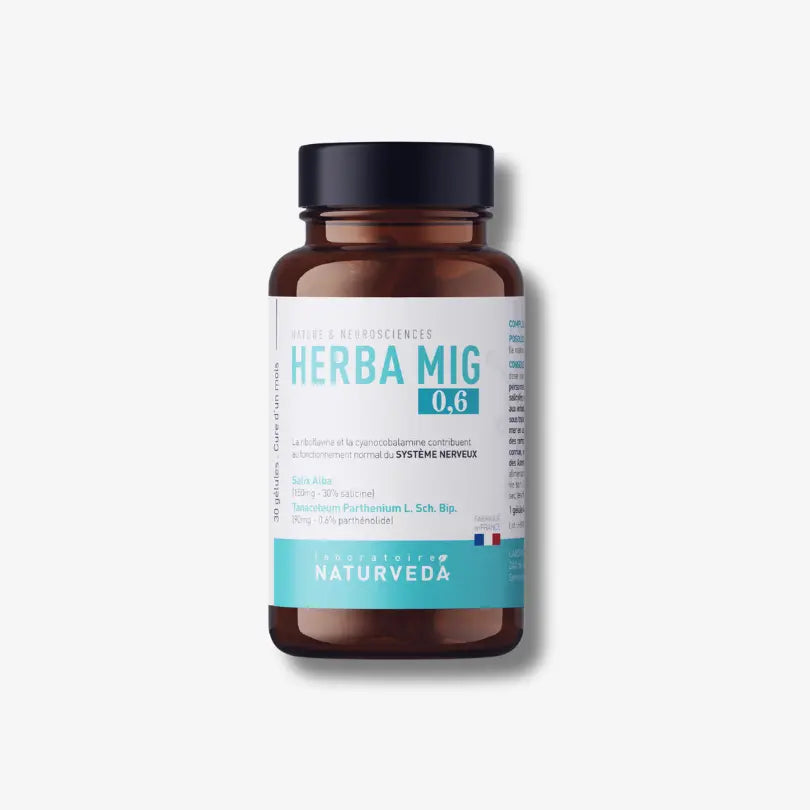Echinacea is one of those medicinal plants that has gained popularity in recent centuries. Native to North America, it is used to treat various conditions, and is known to be effective in preventing and managing respiratory infections. But what are the concrete benefits of echinacea for stimulating the immune system? Explore them in this article!
What is Echinacea?
Learn more about Echinacea
Echinacea (scientific name Echinacea ) is a perennial plant with petals that form a cone . Often purple, it can also be pink or white depending on the variety. This plant is found mainly in the prairies and plains of North America , where it grows naturally. It can also reach a height of 60 to 120 centimeters!
The different varieties of Echinacea
There are different varieties of Echinacea. And while they may look similar, they do have distinct properties. This allows everyone to find the one that is best suited to their specific needs. Today, the most popular varieties of Echinacea found in herbal medicine are:
- Echinacea purpurea : rich in polysaccharides, which particularly support the immune system.
- Echinacea angustifolia : with a high concentration of phenolic compounds and essential oils, which contribute to its antiviral properties.
- Echinacea pallida : Less commonly used, it is nevertheless beneficial for people looking for a milder effect.
A plant used for a very long time
Echinacea is not a new plant, quite the contrary, it has been used for many centuries. In North America , where it comes from, indigenous peoples such as the Lakotas and Dakotas used this plant to cure respiratory infections, inflammations and wounds . Then, at the end of the 19th century, it was the turn of Europeans to discover the effects of echinacea and thus incorporate it into their pharmacopoeia. Since then, we can say that this perennial plant has an important place in natural medicine, particularly in Europe and the United States .
What are the active ingredients in echinacea?
Bioactive components
Like many plants, Echinacea has its own properties. In fact, it is a plant that is full of active components, each of which plays a role in strengthening the immune system. Here is a list of them:
- Alkaloids : present in the roots, they have antimicrobial and antifungal effects. They thus help fight bacteria and fungi.
- Flavonoids : In addition to their antioxidant properties, they also support blood circulation, which allows better transport of immune cells.
- Polysaccharides : as immunomodulators, they stimulate the immune response (example: macrophages, eliminating pathogens from the body).
- Polyphenols : These are natural antioxidants that help protect cells from oxidative stress, thereby reducing chronic inflammation.
Their effects on the immune system
To strengthen the immune system, the different components of echinacea act together, in a complementary manner . For example, polysaccharides will increase the activity of macrophages, white blood cells that eliminate pathogens. While in parallel, polyphenols will limit the oxidative damage caused to immune cells, allowing an effective defense to be maintained.
What are the benefits of echinacea for the immune system?
Stimulation of innate immunity
Have you ever heard of innate immunity ? It is simply our body's first line of defense. And echinacea helps boost this immunity: at the first signs of infection, the plant acts. In fact, it promotes the release of cytokines , proteins that regulate immune responses. This facilitates the inflammatory response needed to fight off a nascent infection, and helps reduce the risk of the infection spreading to the rest of the body.
Antiviral and antibacterial effects
Additionally, Echinacea is known for its antiviral and antibacterial effects. In general, viruses, such as those that cause colds and flu, can be controlled with Echinacea. The herb has been shown to slow the proliferation of viruses , preventing them from spreading rapidly within cells, due to its action of inhibiting certain viral enzymes. Furthermore, the bioactive compounds in Echinacea help to slow bacterial growth in the respiratory tract , thereby reducing the risk of secondary infections.
Reduction in the duration and severity of symptoms
Finally, echinacea is also widely appreciated for its ability to reduce the duration of symptoms in the event of an infection . If taken at the first signs, there is generally a reduction in the intensity of symptoms such as fever, cough, and sore throat. One study showed that in people taking echinacea during a cold, symptoms lasted an average of 1.4 days less than in people not taking it. In short, echinacea allows for a less unpleasant experience and a faster recovery .
How to use echinacea to strengthen your immune system?
The different shapes available
Nowadays, echinacea is available in several forms. They each have their own particularities, it is up to you to choose the one that suits you and that seems to be the most suitable among in particular:
- Capsules and tablets : ideal for daily use (precise dosage and easy to transport)
- Infusions : for gentle absorption of active ingredients, while providing a soothing effect on the throat and respiratory system.
- Liquid extracts and tinctures : Often diluted in water, these concentrated forms allow for faster absorption and effective action for early symptoms.
- Ointments : less popular, they can be used locally for small wounds or skin irritations.
Recommended dosages and duration of use
There is no real magic dosage. In fact, the doses depend not only on the needs of each person, but also on the form chosen. However, as a general rule, the recommended dose is 300 mg of echinacea , three times a day , for optimal effectiveness in prevention. And for liquid extracts, the recommended dose is around 0.75 to 1 ml three times a day . As for the duration of the treatment, the echinacea cure must, like many other cures, be limited in time . Indeed, it is possible that continued consumption leads to addiction and then reduces the effects of the plant.
Precautions for use and contraindications
Although echinacea is generally well tolerated, it is essential to consult a health professional before using this plant as a treatment. Some people must take precautions. These are mainly people allergic to Asteraceae (chamomile, marigold, arnica), those with autoimmune diseases , but also pregnant or breastfeeding women .
Conclusion
In conclusion, you will have understood: echinacea has many benefits to support and stimulate the immune system. Thanks to the stimulation of innate immunity and the antiviral and anti-inflammatory properties of the plant, it can play a valuable role in the prevention and management of common infections. In addition to a healthy lifestyle, echinacea can therefore be an effective ally for a strong and resistant immune system.






